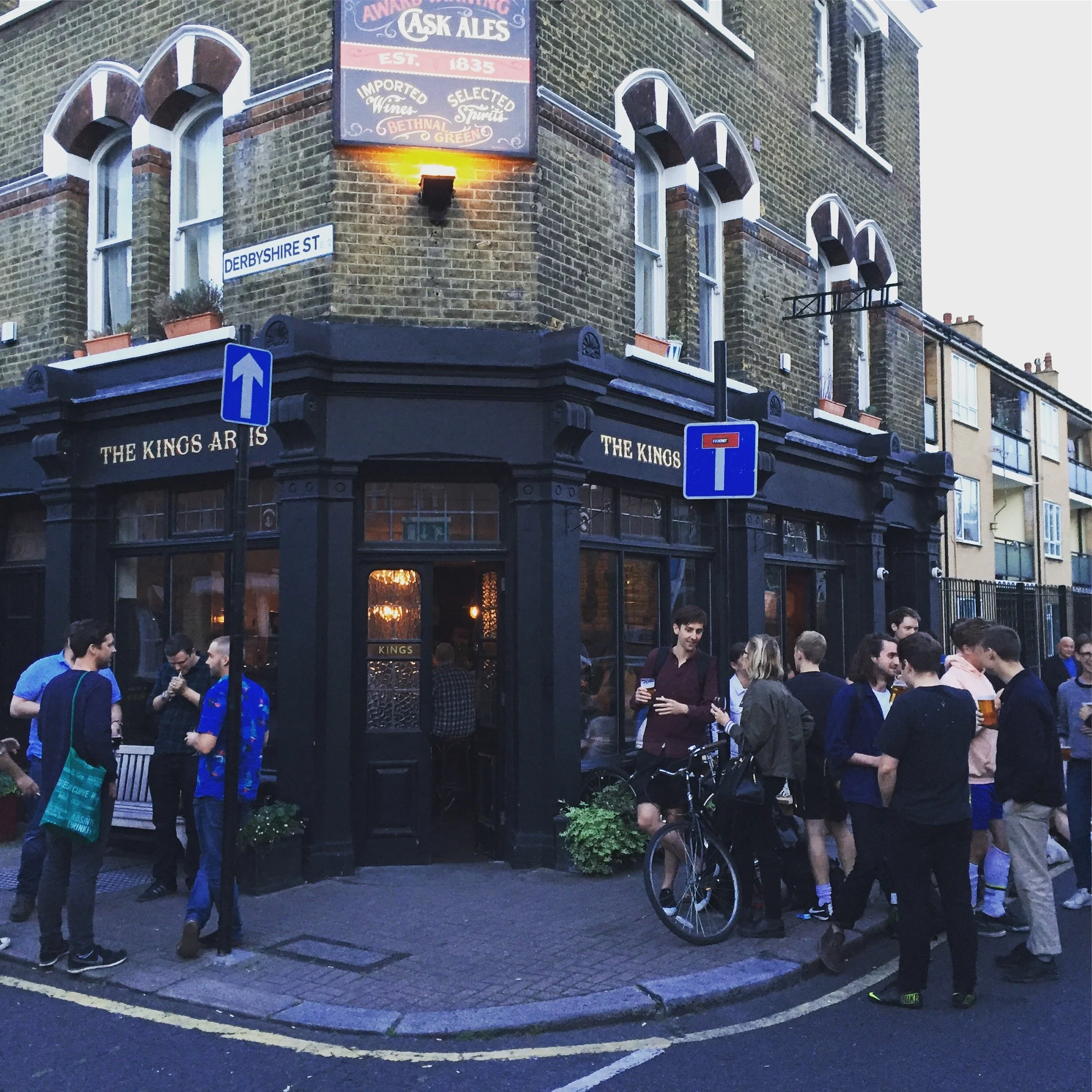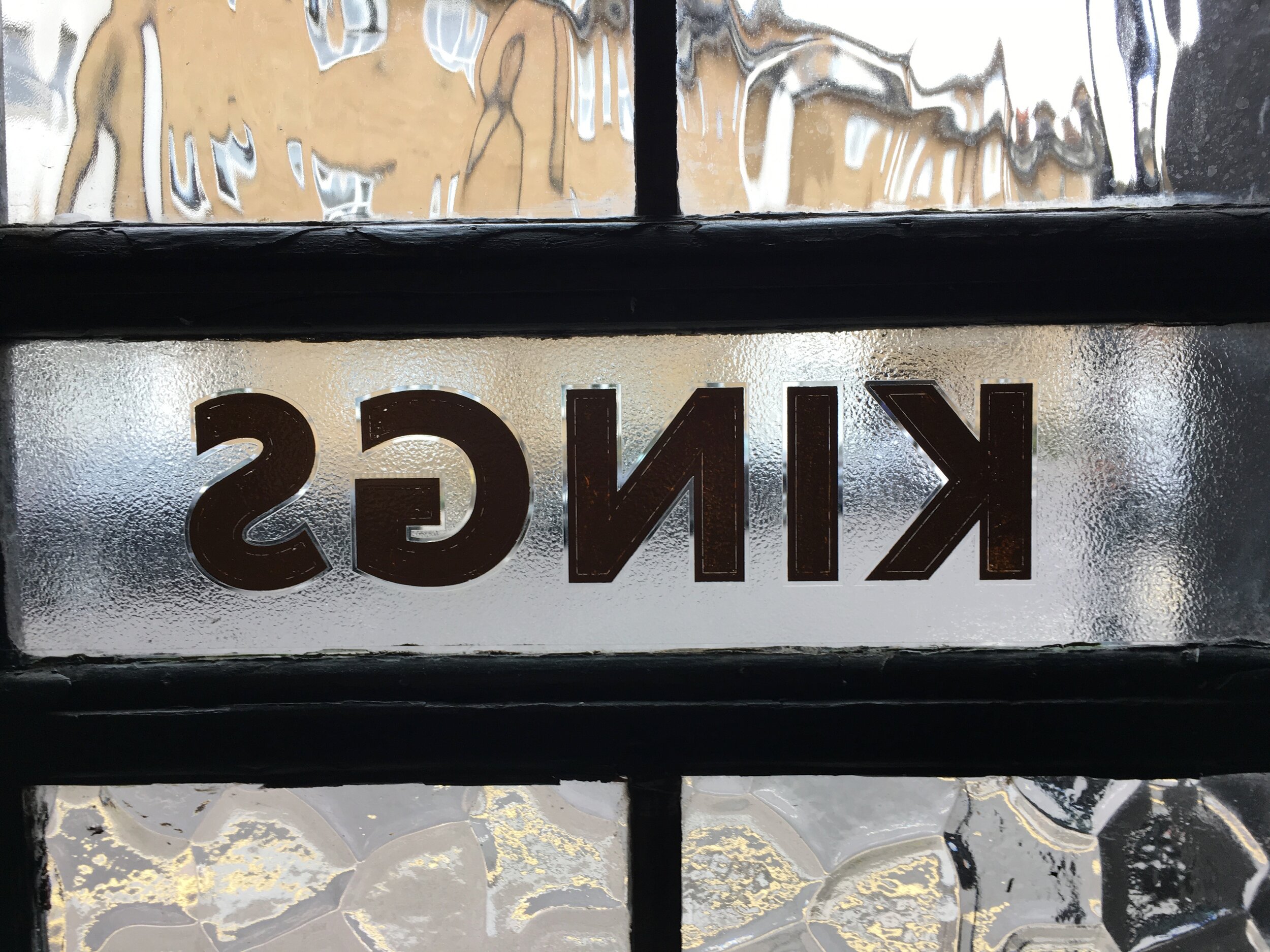“We owe a lot of money. As soon as one person in the supply chain says, "Fuck, I need money!” then the whole pyramid will fall down”
With £30,000 of unsaleable beer in its cellar, Bethnal Green’s King’s Arms has a problem. Operator Anselm Chatwin, though, is optimistic
Unless you’ve been in really deep lockdown, you’ll know that Britain’s pubs are struggling. “Britain’s pubs face worrying future,” says The Sun; “15,000 pubs to stay shut forever unless lockdown lifted,” according to the Daily Mirror; “Will Britain’s pubs survive the coronavirus?” asks the New York Times. There are many more along similar lines.
But while the public are increasingly well-informed on the general issue, the specific problems that a pub faces are perhaps less well known. What are the major pitfalls? How deep does the financial hole get? Is it really plausible that hundreds of pubs could close as a result of the lockdown?
Anselm Chatwin knows the answers to these questions. He is the co-owner of Graceland, which runs six pubs in east and north London, including The King’s Arms in Bethnal Green.
It is perhaps the best pub in the neighbourhood. The interior is modern, simple, heavy on dark teal paint and plain wooden tables; there’s a smart row of seats at the bar, two sun-trap tables outside, and the beer errs on the classical side of modern. There’s hoppy pale ales, bitter, stout, lots of good pale lager, a Hefeweissen now and then.
It’s the sort of place, in short, that it would be hard to lose. So how bad is the problem? Could the King’s Arms close?
“That is pretty much all down to our landlord,” Chatwin, 40, says. “I think at the end of the day, [with] him being an old publican and an individual as opposed to a massive company, we will be able to salvage that somehow.
“On the other hand, we owe a lot of suppliers money, about £30,000. Pretty much all of them have been pretty understanding because they are often in the same boat as us.
“But I think it will come to a crunch point. It's a massive elongated chain, isn't it? As soon as one person in that chain is like, "Fuck, I need money," then the whole pyramid falls down. But at the moment everybody has been pretty nice about the situation.”
The owner of The King’s Arms is Brian Malindine, in whose family the pub has been for decades. Graceland pays him £3,500 a month in rent, a reasonable sum that reflects not only Malindine’s publican background - he was behind the bar himself until 2013, when Graceland took it on - but its position slightly away from the madding crowds, on quiet Buckfast Street. It’s not a place that gets uncomfortably busy, and it makes much the same amount of money month-in, month-out, year-round.
That turnover pays for the rent, about £1500 in utilities and the wages of the pub’s nine staff, who are all currently furloughed. Chatwin is the only Graceland staff member still working, spending his days hurrying from one pub to another, contacting local councils, keeping things ticking over. He’s had to take on extra debt, he says, adding that some of his other pubs have much higher rent than the King’s Arms.
At the moment, that £30,000 of out-of-date beer (which represents about six weeks’ supply) is still sitting in the pubs’ cellars. “We haven't poured anything away yet,” says Chatwin. “That’s because we want to work with the breweries to do that.
“I haven’t talked to all the breweries of the different beers we have in there, but the ones that we have talked to, they're saying that the government has done the classic PR thing where they said something that sounds great about not having to pay as much duty if you can record the wastage, but the reality of recording that wastage hasn’t been worked out yet.”
The government’s record thus far on pubs during lockdown is mixed - Chatwin is a big fan of furlough: “without it, we would definitely have had to sack people” - and the same can be said for local councils. Graceland’s pubs are spread across four boroughs - Hackney, Tower Hamlets, Islington and Camden - and while Hackney has impressed, Tower Hamlets, where the King’s Arms is based, has not.
Local councils are responsible for handing out the Retail, Hospitality and Leisure Grant Fund: £10,000 for properties with a rateable value of £15,000 or under, £25,000 for those with a rateable value of over £15,000 but under £51,000. (Business rates have been suspended for the current tax year).
“With Tower Hamlets, it's almost impossible to even get hold of them on the phone and then you do and they say, ‘Oh yeah, email this thing,’” he says. “And no one replies to your emails!”
At some point will come the question of re-opening. “It's going to be a long time before pub-going is normal,” he says. “I would rather wait an extra month before pubs open rather than open with a lot of [social distancing] restrictions because those restrictions, once they’re applied they’re there for six months rather than a month.
“A lot of it will be about people feeling safe and ready to come out to the pubs again … a lot of pubs only work with maximum capacity.”
In the meanwhile, Chatwin is trying to do as much business as he can. The Red Hand, Graceland’s pub in Dalston, has re-opened as a bottle shop; an online store, for some of the really special beer the company has been saving, is coming soon; and at the Black Heart, merchandise and tickets for future shows - the pub is a much-loved live music venue - are selling well.
“We're selling tickets to gigs that bands have offered to play for free,” says Chatwin. “That's quite good. The Black Heart has got a really strong, loyal following, and we've raised quite a lot of money there.” It’s good news, the sort of news pubs really need right now.

